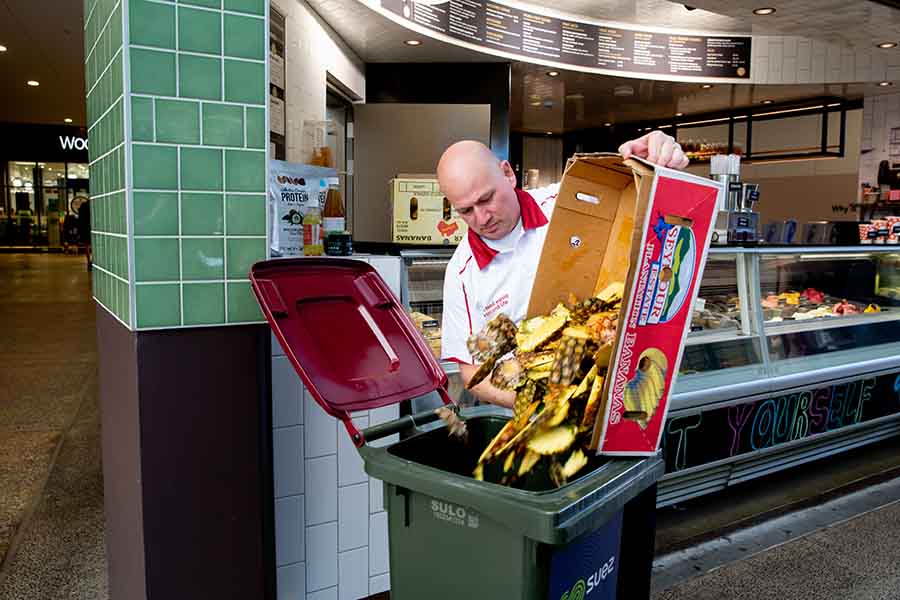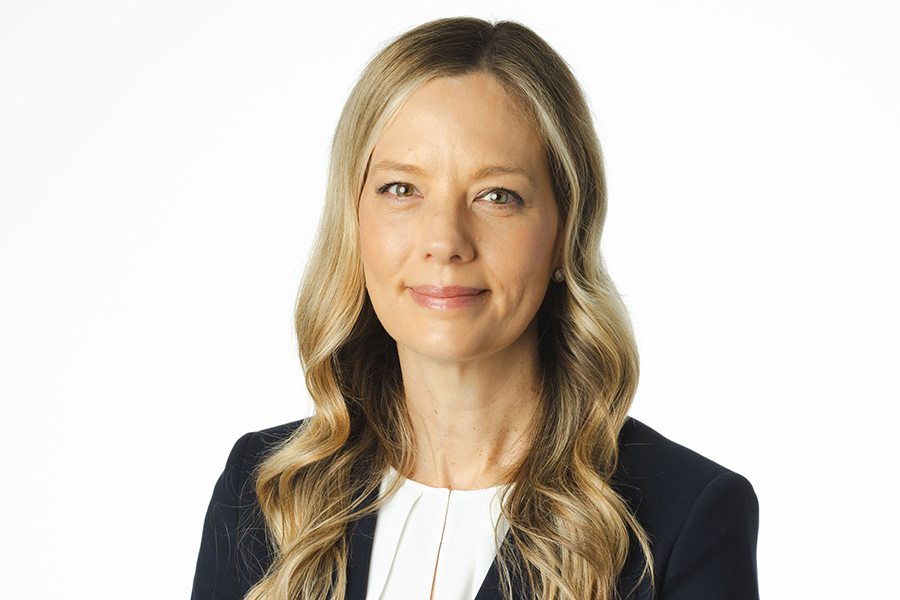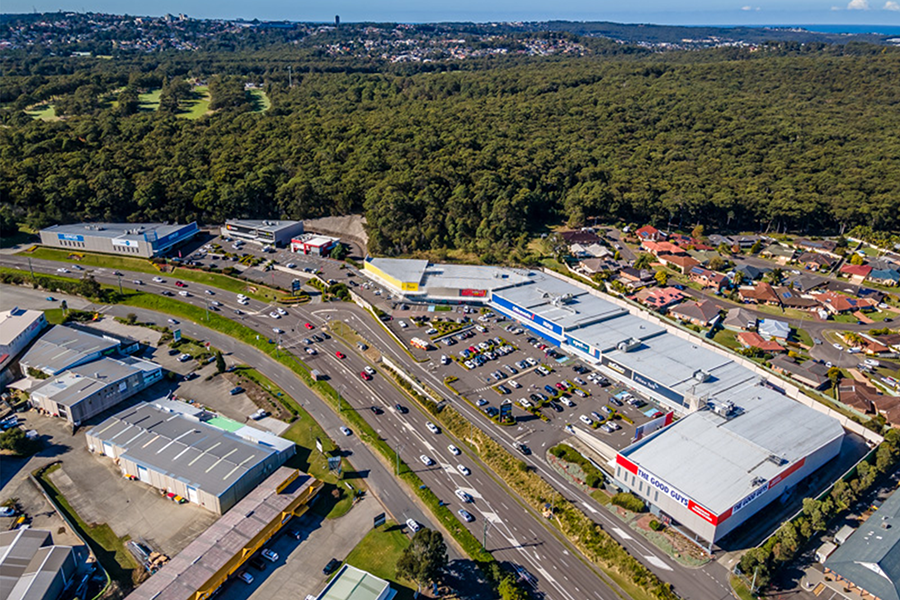The AMP Capital owned and managed, Gasworks Plaza has taken food recycling to a new level by being part of a new pilot program. The centre has partnered with SUEZ and NUGrow to put the circular economy in motion by turning unwanted food waste into nutrient-rich compost, and returning the now valuable resource to Brisbane’s iconic Newstead Gasometer’s gardens.
Gasworks Plaza, located in Newstead, just 1.7 kilometres from Brisbane CBD, is a mixed-use development set across just under 10,000m2. The trendy inner city retail centre located inside the old gas holder of the heritage-listed Newstead Gasworks is leading the pilot within the shopping centre industry.
Perhaps the biggest advantage, according to Queensland State Sales Manager for SUEZ Australia Liesl Hull, “Is that by consciously composting, the waste is diverted from landfill, which means fewer greenhouse gases. Today marked the first time that the now composted waste will be returned to the Gasworks where it was originally collected and dug into the landscaping.”
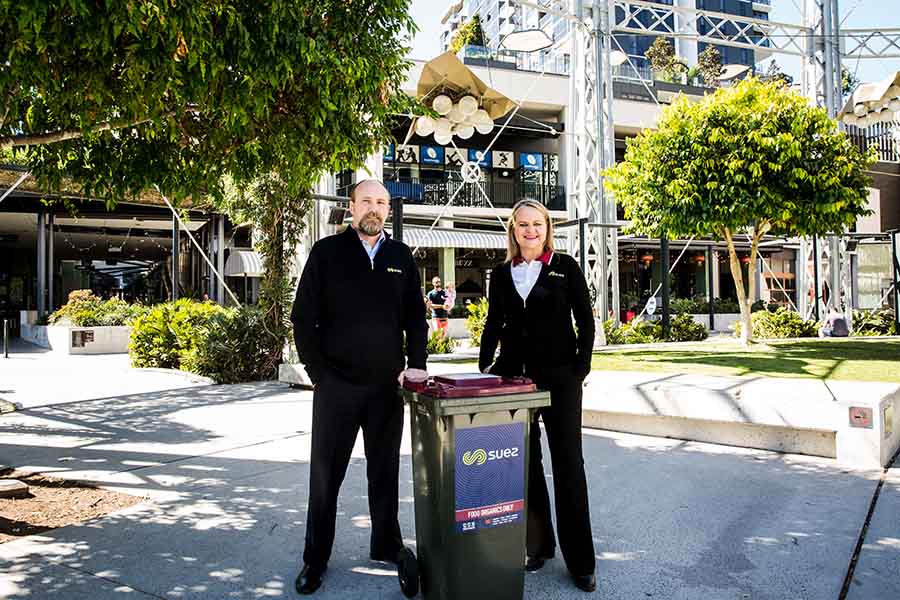
The SUEZ team, Liesl Hull and Ian Bock
Since initiating the pilot program, SUEZ has diverted 600 tonnes of food waste via a dedicated wheelie bin collection service in Brisbane alone. Together with NuGrow which is Queensland-based privately owned company that specialises in recycling and revegetation. the company composts green waste and transforms it into soil blends or spray-on or pneumatically applied compost for re-vegetation the centre has delivered a very successful pilot with retailers on board.
AMP’s Gasworks Plaza was one of the early adopters to start collecting and composting food waste that had previously been going into the waste compactors. And already, Operations Manager Jason Gillig said Gasworks was on track to achieve their 2020 target to divert 50% of their waste from landfill to recycling.
“From the program’s inception with SUEZ in August 2018, Gasworks has managed to recycle more than 50 tonnes per month of organic waste through NuGrow’s Swanbank facility, while improving diversion rates from 30% to 47%,” he said.
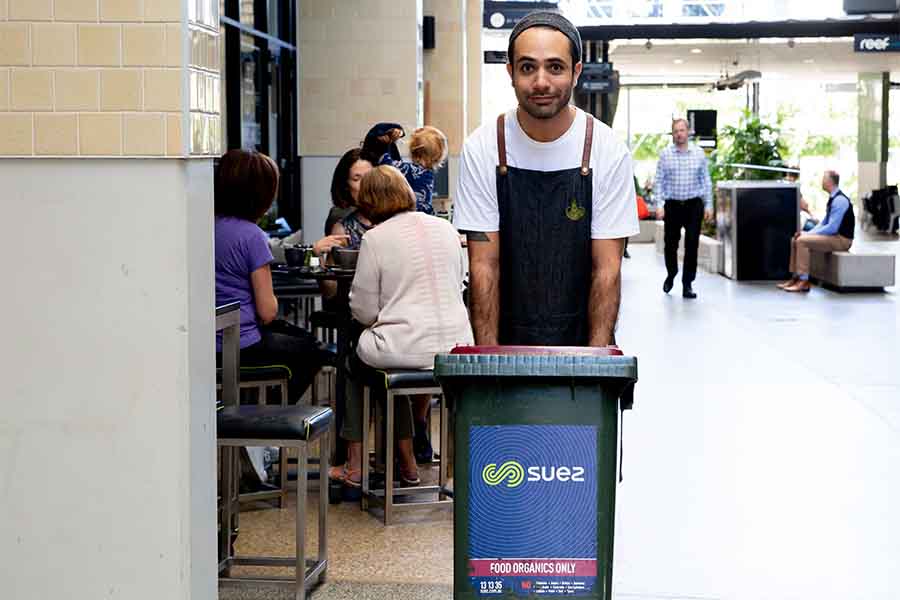
Educating retailers was key to its success
“We’ve implemented recycling through other waste streams such as paper and cardboard, plastic, glass and aluminium cans, oils, meat and bone and e-waste from electrical products, while also donating clothing to charities and tenant food to Oz Harvest. Through strong processes and training, Gasworks is committed to improving the amount of waste recycled across all peripheral waste streams with the focus on capturing organic waste to not only save amount of waste ending up in landfill but to also see the direct benefits this recycled produce can produce” he said.
“Gasworks is proud to partner with SUEZ as both parties share the same values and commitment to environmental improvements and sustainability across all areas of operation within a complex shopping centre environment” he added.
SUEZ has its sights on expanding the pilot program to the Gold Coast. “First and foremost, SUEZ is an environmental company, not just a waste company, so it’s important for us to protect our natural resources,” Hull said.
Before July 1, Queensland was one of only two Australians states that didn’t have a waste levy in place.Hull said this had meant recycling was more expensive than landfilling in Queensland.
“Companies would even bring waste from New South Wales into Queensland because waste levies in their own state meant it was cheaper to landfill here,” Hull said.
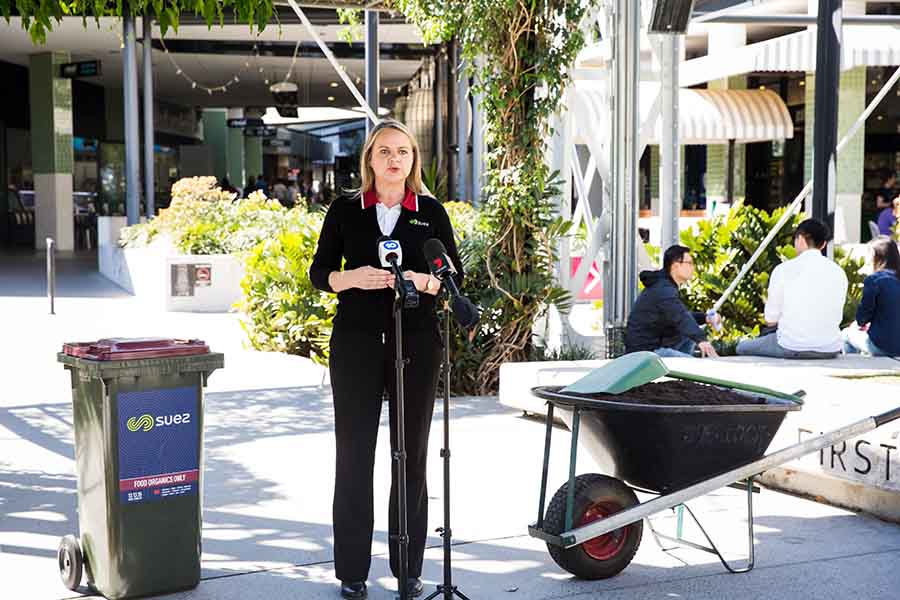
Queensland State Sales Manager for SUEZ Australia Liesl Hull addressing the crowds at the ceremony to mark the compost returning to Gasworks for the first time.
“This waste levy has increased the price of waste going to landfill by a minimum of $75 a tonne. That’s just on the general waste – the regulated waste streams will have a higher cost impact. This will encourage businesses to re-look at the way they produce waste, and what they’re doing with their waste thereafter”, she said.
While the project began from a big picture world view around protecting the planet, it’s the micro-management that has made all the difference.
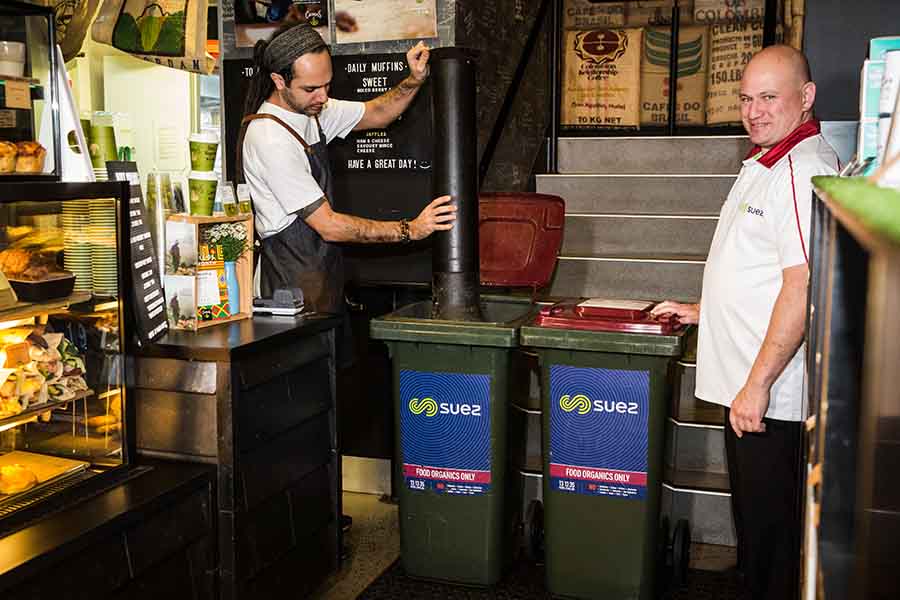
Putting the circular economy in to motion
“At some sites, we’ve even deployed SUEZ team members to walk around the centre and educate the tenants about the importance of avoiding contamination from things such as ceramics, metals and plastics that would compromise the quality of the end-product. Given the turnover of staff within retail, absolute clarity around the collection of each waste and recycling stream has been crucial to managing new processes,” Hull said.
NuGrow’s Chief Commercial Officer Jacob Wilson said “This initiative demonstrates a total closed loop recycling process because 100 per cent of the food waste has been recycled and can even be returned to where the waste came from in the form of quality compost. The model can be sized down or sized up and would be suitable for any food-based business.”


